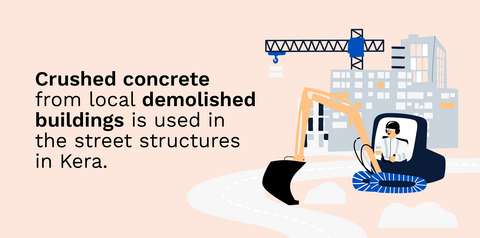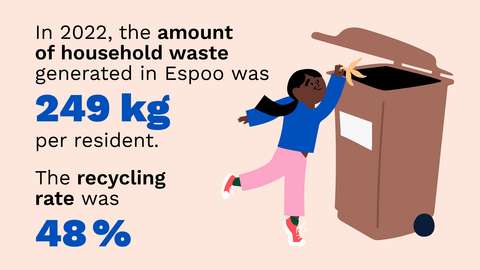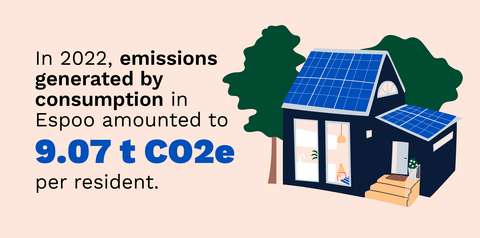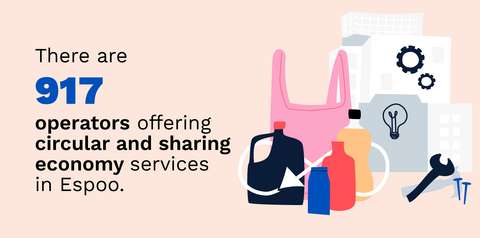Circular economy in 2023
Espoo is a rapidly growing city. The city’s population is estimated to have grown by some 8,900 residents in 2023. To grow sustainably, we must transition to a circular economy, which will help us solve a number of problems related to climate change, biodiversity and over-consumption of natural resources. In Espoo, promoting the circular economy supports our goals of being carbon-neutral by 2030 and achieving the UN’s Sustainable Development Goals as a pioneering city. The measures and changes we carry out yearly will guide our long-term goals. Circular economy in 2023 provides an overview of the steps taken in 2023 to promote the circular and sharing economy.
The circular economy affects production, products, services, private and public consumption, and waste management. The key objective of the circular economy is to use natural resources sustainably in order to protect the environment and generate as little waste as possible. Finished products remain in circulation longer when they are shared, rented, maintained, repaired, used for spare parts, and finally recycled as raw materials for new products. The transition to a circular economy will also make society more sustainable and create new business opportunities and jobs.
Espoo promotes the circular economy and related services by developing its own activities and by cooperating with companies and partners in the area. Through its decisions and actions, the public sector can enable and support the circular economy by removing barriers to growth, strengthening enabling structures and operating in an exemplary way. Companies produce innovations and business models that aim to introduce new circular economy product and service concepts based on market demand, i.e. customers’ needs.
Espoo participates in promoting the circular economy locally, nationally and internationally. Together with the other operators in the Uusimaa circular economy valley project, we want Uusimaa to be a model region in terms of the circular economy. Espoo is also involved in the preparation of the principles and rules of the national Green Deal, together with ministries (Ministry of the Environment, Ministry of Economic Affairs and Employment) and 80 other operators, and has signed the Europe-wide Circular Cities Declaration – a circular economy commitment with ten goals that will advance circularity and sustainable development within the city. Progress is reported annually to the international sustainability organisation ICLEI – Local Governments for Sustainability.
The Sustainable Espoo development programme implements the Espoo Story and includes five circular economy priorities for 2021–2025: circular economy solutions throughout the life cycle of construction, waste-free Espoo, biocircular economy, sustainable public procurement, and circular and sharing economy services for residents.
City of Espoo’s report on the circular and sharing economy in 2023
Read the City of Espoo’s report on the circular and sharing economy in 2023.
The steps that were taken towards a circular economy in 2023 are compiled in this report. Read more about the circular economy and the latest news on our carbon-neutral circular economy website.
Tell us your opinion on the ‘Circular economy in 2023’ report! Through our feedback survey you can give us feedback and share your development ideas for promoting the circular economy in Espoo. Take our feedback survey.(external link, opens in a new window)




